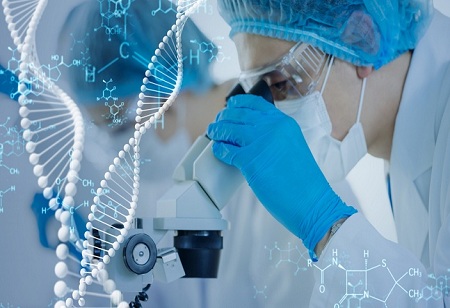-
Biotechnology science has experienced a striking transformation in recent years, emerging as a beacon of promise for aspiring students across Asia. Several opportunities are now available for those with a biotech degree, ranging from active research and cutting-edge development to branching into entrepreneurship and innovation. The need for skilled biotech workers is more crucial than ever in a society where complex concerns like healthcare improvements, ecological balance, and food security must be tackled. This article sets out on a journey to illuminate the broad scope of biotechnology, probe into the priceless skills it offers, explore the various career paths it offers, explore the options for postgraduate studies, and ultimately envision the trajectory of biotechnology in the ever-evolving Asian landscape.
Skills Attained in a Biotech Degree Program
Students are given a wide range of abilities via a complete biotech degree. These abilities combine scientific knowledge with real-world applications, supporting the ability to connect complex ideas with practical solutions. Students often obtain knowledge of molecular biology, genetics, biochemistry, microbiology, and other fields. They also acquire crucial analytical and problem-solving abilities necessary for understanding sophisticated biological processes and creating innovative solutions. Laboratory procedures such as gene editing, cloning, and protein expression become second nature for biotech grads. Furthermore, their training covers project management, regulatory compliance, communication skills, and laboratory-based instruction. Thanks to their broad skill set, biotech graduates are excellent assets in many industries.
Career Prospects with a Biotech Degree
Graduates in the biotech industry have a wide range of job options. Graduates who want to work in the pharmaceutical industry can do so, helping to find and develop new drugs. They are essential in planning studies, processing data, and running clinical trials. Biotech specialists work in the agricultural industry to develop nutrient- and hardiness-rich genetically engineered crops. Biotech graduates are also crucial in the healthcare industry, where they create diagnostic instruments, treatments, and personalized medicine solutions. Bioinformatics is a fast-expanding profession that depends on specialists who can decipher and evaluate massive biological datasets. In addition to these industries, opportunities exist in environmental biotechnology, industrial fermentation, and even ethical issues related to biotech uses.
Pursuing a Graduate Degree in Biotech
While obtaining a graduate degree can provide specialized knowledge and more advanced professional options, a biotech bachelor's degree still offers numerous avenues. Students can explore their selected areas of interest more deeply through master's and doctorate programs. These programmes frequently include cutting-edge research and teamwork with subject-matter experts. Graduates with advanced degrees often work as research project leaders, team managers, or academic institution instructors.
Technological Advancements in Biotech Degree
Biotech degree programmes have undergone a revolution thanks to technological development, taking them to new, exciting realms. Modern courses incorporate cutting-edge technologies like CRISPR-Cas9, single-cell sequencing, and bioinformatics, enabling students to understand genome editing, personalized medicine, and synthetic biology. Virtual labs mimic real-world experiments to improve hands-on learning. AI-driven platforms interpret complicated biological data, advancing computational abilities. Industry collaborations provide exposure to contemporary technology and industrial operations. Degree programmes change to foster flexible graduates who march boldly into a future where science and technology blend fluidly as biotechnology alters the healthcare, agricultural, and environmental sectors.
Is a Biotech Degree Worth It?
An important consideration for prospective students is whether a biotech degree is worthwhile. The biotech sector's adaptability to global difficulties and dynamic character is the key to the solution. It is a subject of study, but biotechnology is also a force for transformation. Biotechnological breakthroughs can transform industries, save lives, and advance sustainable practices. Another critical factor is the potential earnings of biotech specialists. Positions in R&D, production, quality control, and regulatory affairs come with competitive pay as sectors appreciate biotech expertise's importance.
Some of the Universities in Asia that offer Biotech Courses
- National University of Singapore (NUS)
Singapore NUS offers various biotechnology-related programs, including Bachelor's, Master's, and Ph.D. degrees.
- University of Tokyo - Japan
The University of Tokyo is renowned for its research programs in biotechnology and offers both undergraduate and graduate degrees in this field.
- Seoul National University - South Korea
Seoul National University offers comprehensive biotechnology programs at the undergraduate and graduate levels.
- Indian Institute of Technology (IIT) - India
Several IIT campuses in India offer biotechnology degrees, with IIT Delhi and IIT Bombay being notable ones in this field.
- National Taiwan University (NTU) - Taiwan
NTU offers biotechnology programs and is known for its research in this field.
The Future of Biotech in Asia
In Asia, biotechnology has a bright future and enormous potential. Governments and businesses all over the continent are making significant R&D investments, creating a favorable climate for growth. In nations like Singapore, China, and South Korea, where innovation is thriving, biotech hubs are starting to emerge. Precision medicine, synthetic biology, and environmentally friendly bioprocessing techniques are three major growth areas. Precision medicine customizes medical procedures to specific genetic profiles to maximize therapeutic effectiveness and reduce unwanted side effects. Sustainable bioprocessing techniques are crucial for reducing the environmental impact of biotech practices, while synthetic biology entails designing biological systems for brand-new applications.
The final analysis, a biotech degree in Asia, offers a variety of chances, from taking part in ground-breaking research to solving urgent global problems. Biotech degree programmes graduates have highly flexible skills to help them flourish in various areas. Pursuing additional degrees can further improve employment, and the field's constant evolution ensures biotechnology's ongoing importance and influence. A biotech degree is undoubtedly worthwhile for people passionate about research, innovation, and making a difference.
🍪 Do you like Cookies?
We use cookies to ensure you get the best experience on our website. Read more...

